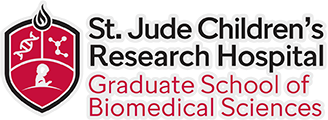Yogesh Dhungana’s primary motivation can be summed up as “to grow is to learn.” He believes systems biology approaches combined with the predictive power of data-driven approaches, such as supervised and unsupervised machine learning or network-based analysis, will act as a ladder for biologists for use in inferring ‘high-hanging’ and novel insights.
Dhungana earned his bachelor’s degree in biotechnology in 2012 from Purbanchal University, Nepal. He received the prestigious Gold Medal from the honorable former Prime Minister of Nepal, Dr. Baburam Bhattrai, for securing a topmost position in the Department of Science and Technology. He received a master's degree in computational systems biology in 2015 while studying as an Erasmus Mundus Scholar at KTH Royal Institute of Technology in Stockholm, Sweden, IST Instituto Superior Técnico in Lisbon, Portugal and Aalto University in Helsinki, Finland. He is interested in using translational, systems biology approaches to address pressing questions in biomedical science.
Dhungana currently works in the lab of Jiyang Yu, PhD, in the Department of Computational Biology, where he is using network-based approaches to dissect immunometabolism hidden drivers to enhance CAR T-cell persistence. Additionally, he is exploring the possibility of using graph neural network (GNN) approaches for multi-omics data integration.
“St. Jude is a fantastic institute that promotes translational research and appreciates the power of large-scale, multi-omics studies, which is evident by launch of St Jude Cloud, the world’s largest public repository for pediatric cancer genomics data,” he says. “This gives me a unique opportunity to pursue my academic interests and maximize the potential of the state-of-art resources provided.”
Hometown: Hetauda, Nepal
Publications
Zheng W, Wei J, Zebley C, Jones LL, Dhungana Y, Wang YD, Mavuluri J, Long L, Fan Y, Youngblood B, Chi H, Geiger TL. Regnase-1 suppresses TCF-1+ precursor exhausted T cell formation to limit CAR T cell responses against ALL. Blood 2021.
Huang H, Zhou P, Wei J, Long L, Shi H, Dhungana Y, Chapman NM, Fu G, Saravia J, Raynor JL, Liu S, Palacios G, Wang YD, Qian C, Yu J, Chi H. In vivo CRISPR screening reveals nutrient signaling processes underpinning CD8(+) T cell fate decisions. Cell 184:1245-1261.e21, 2021.
Raynor JL, Liu C, Dhungana Y, Guy C, Chapman NM, Shi H, Neale G, Sesaki H, Chi H. Hippo/Mst signaling coordinates cellular quiescence with terminal maturation in iNKT cell development and fate decisions. J Exp Med 217:e20191157, 2020.
Kennedy DE, Okoreeh MK, Maienschein-Cline M, Ai J, Veselits M, McLean KC, Dhungana Y, Wang H, Peng J, Chi H, Mandal M, Clark MR. Novel specialized cell state and spatial compartments within the germinal center. Nat Immunol 21:660-670, 2020.
Du X, Zeng H, Liu S, Guy C, Dhungana Y, Neale G, Bergo MO, Chi H. Mevalonate metabolism-dependent protein geranylgeranylation regulates thymocyte egress. J Exp Med 217:e201906969, 2020.
Saravia J, Zeng H, Dhungana Y, Bastardo Blanco D, Nguyen TM, Chapman NM, Wang Y, Kanneganti A, Liu S, Raynor JL, Vogel P, Neale G, Carmeliet P, Chi H. Homeostasis and transitional activation of regulatory T cells require c-Myc. Sci Adv 6:eaaw6443, 2020.
Shi H, Chapman NM, Wen J, Guy C, Long L, Dhungana Y, Rankin S, Pelletier S, Vogel P, Wang H, Peng J, Guan KL, Chi H. Amino acids license kinase mTORC1 activity and Treg cell function via small G proteins Rag and Rheb. Immunity 51:1012-1027.e7, 2019.
Wei J, Long L, Zheng W, Dhungana Y, Lim SA, Guy C, Wang Y, Wang YD, Qian C, Xu B, Kc A, Saravia J, Huang H, Yu J, Doench JG, Geiger TL, Chi H. Targeting REGNASE-1 programs long-lived effector T cells for cancer therapy. Nature 576:471-476, 2019.
Wang Y, Du X, Wei J, Long L, Tan H, Guy C, Dhungana Y, Qian C, Neale G, Fu YX, Yu J, Peng J, Chi H. LKB1 orchestrates dendritic cell metabolic quiescence and anti-tumor immunity. Cell Res 29:391-405, 2019.
Karmaus PWF, Chen X, Lim SA, Herrada AA, Nguyen TM, Xu B, Dhungana Y, Rankin S, Chen W, Rosencrance C, Yang K, Fan Y, Cheng Y, Easton J, Neale G, Vogel P, Chi H. Metabolic heterogeneity underlies reciprocal fates of TH17 cell stemness and plasticity. Nature 565:101-105, 2019.


